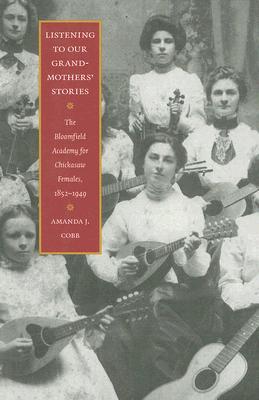Amanda J. Cobb became interested in Bloomfield Academy because of her grandmother, Ida Mae Pratt Cobb, an alumna from the 1920s. Drawing on letters, reports, interviews with students, and school programs, Cobb recounts the academy's success story. In stark contrast to the federally run off-reservation boarding schools in operation at the time, Bloomfield represents a rare instance of tribal control in education. For the Chickasaw Nation, Bloomfield--a tool of assimilation--became an important method of self-preservation.

Book
Listening to Our Grandmothers' Stories: The Bloomfield Academy for Chickasaw Females, 1852-1949
(Write a Review)
Paperback
$14.95
Amanda J. Cobb became interested in Bloomfield Academy because of her grandmother, Ida Mae Pratt Cobb, an alumna from the 1920s. Drawing on letters, reports, interviews with students, and school programs, Cobb recounts the academy's success story. In stark contrast to the federally run off-reservation boarding schools in operation at the time, Bloomfield represents a rare instance of tribal control in education. For the Chickasaw Nation, Bloomfield--a tool of assimilation--became an important method of self-preservation.
Paperback
$14.95